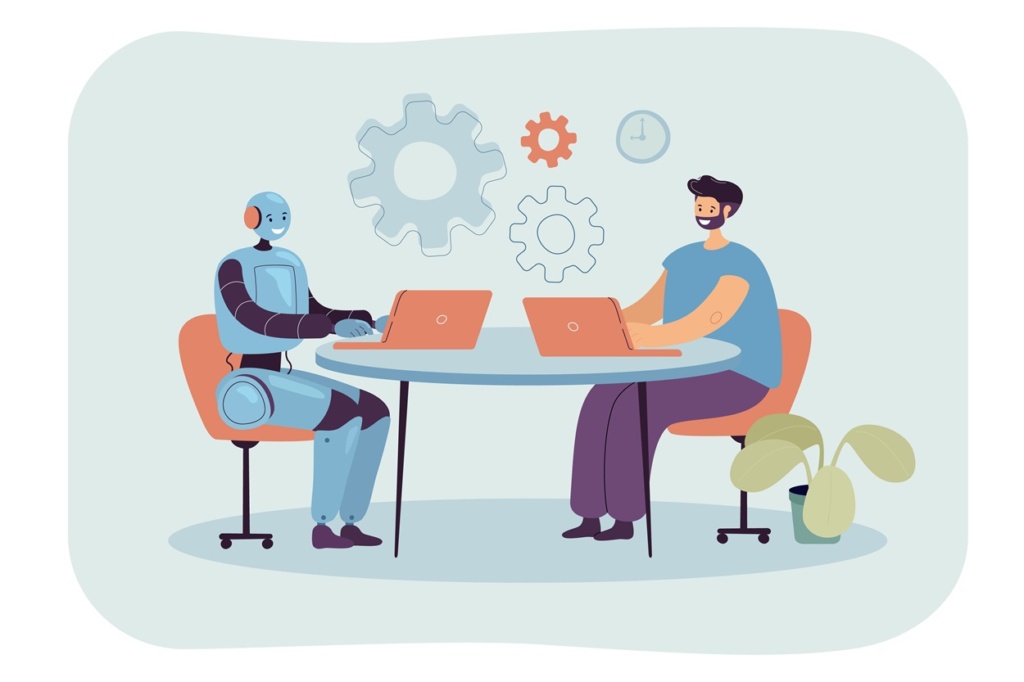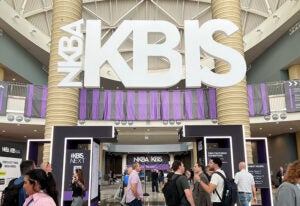

Ever feel like the world of AI is buzzing with exciting new terms, but it’s hard to tell what they all mean? You hear “chatbot” here, “AI agent” there, and sometimes even “AI chatbot.” It can get a little confusing! But don’t worry, you’re not alone. In this blog, we are going to clear out all the confusion and know what each means.
Think of it like this: not all digital assistants are created equal. Some are like helpful receptionists, while others are more like super-smart personal assistants. But understanding the difference between an AI agent vs. chatbot is key to knowing what to expect from these two modern pieces of technology.
So, let’s dive in while knowing which one is the best digital helper for your needs!
Let’s First Understand About Chatbot
How many times does a little pop-up window appear when you’re going through a website asking, How can I help you today? Well, those are chatbots, and there’s always a chance that people might interact with a chatbot while visiting a website.
What exactly is a chatbot?

At its core, a chatbot is a computer program designed to have conversations with humans, especially over the internet. Most traditional chatbots work by following a set of pre-programmed rules. They have a bank of answers to common questions, and when you type something, they try to match it to one of their pre-set responses.
So, how do they work?
If you ask, “What are your opening hours?” the chatbot’s system searches for keywords like “opening hours, open timings,” etc. Once it finds a match, it displays the pre-written answer: “We’re open from 9 AM to 5 PM, Monday to Friday.” Simple, right?
Moreover, they’re great for handling frequently asked questions (FAQs). Besides, you’ve probably seen them on banking sites, e-commerce stores, or even government portals. They save a lot of time for both you and the company by quickly giving out information that many people ask for. Furthermore, the best part about AI chatbots is that they’re available 24/7, which is super handy when you have a question at 3 AM!
Where are chatbots most suitable?
- Customer Service: Chatbots are perfect when it comes to handling customers, answering their common questions regarding products, services, shipping, or returns.
- Information Retrieval: Providing quick access to facts or data from a pre-defined knowledge base.
- Lead Generation: Asking basic questions to gather information from potential customers.
- Basic Task Automation: Helping you reset a password or check an order status if the steps are straightforward.
While powerful for their intended purpose, these traditional chatbots have some limitations, too. If you raise a query outside their programmed script, these chatbots might get confused, repeat the answers, or direct you to a human agent. They don’t “learn” or “think” in the way we might imagine advanced AI does.
What’s The AI Chatbot?
Now, let’s talk about the term AI chatbot. This is where things get a bit more interesting, and often, it’s where the people get confused between AI Agent vs Chatbot. An AI chatbot isn’t just following a script; it’s using artificial intelligence to understand the audience better.
What makes an AI chatbot different?
Unlike just basic chatbots, an AI chatbot is powered by things like Natural Language Processing (NLP) and Machine Learning (ML). This means it doesn’t just look for keywords; it tries to understand the meaning and intent behind the words and queries of the audience. It can handle more complex sentences, recognize slang, and even pick up on emotions easily (like frustration) in your tone or text.
Think of it as a chatbot that’s a little advanced with programming and machine learning! AI chatbots have a much broader understanding and can have a more natural, flowing conversation. It learns from each interaction, getting better at understanding and responding over time.
How do they pull off these human chats?
They use large amounts of text data to learn patterns in human language. So, when you ask a question, it doesn’t just match keywords; it actually processes the sentence structure and context to figure out what you really mean. This allows it to generate more relevant and less robotic responses.
Where do AI chatbots truly excel?
- More Natural Conversations: They can hold conversations that feel much more human-like, adapting to your language and style.
- Problem Solving: While still primarily conversational, they can help resolve more nuanced issues that require understanding context rather than just matching a phrase.
- Personalized Interactions: It remembers past conversations and it stores valuable data from them, including user data. Afterwards, it offers more customized suggestions and recommendations based on past experiences.
- Sentiment Analysis: They can often detect if you’re happy, frustrated, or confused and try to adjust their response accordingly.
Furthermore, an AI chatbot is definitely a smart choice if we compare it to basic chatbots. It primarily focuses on conversation. The main goal is to communicate effectively and provide the right information and guide the audience through their queries or what it just simply understands from the input given. It’s more of reactive language; it waits for the audience to respond or chat with it. But what if you need something that can do more proactively?
Enter The AI Agent: A Smarter, Proactive Assistant

Here’s where the AI agent steps onto the stage, and this is where the real power of artificial intelligence starts to show its true colors beyond just replying to chats. An AI agent is more than just a conversational partner; it’s a digital entity designed to take action and achieve goals on its own, with minimal human guidance.
So, what makes an AI agent stand apart?
An AI agent is built to reason, plan, and execute tasks. It doesn’t just answer questions; it can do things. It’s like a system where you ask AI agent to book a flight to Dubai for next Monday, and it actually searches for the flights while considering your preferences and displays the booking, all without you having to click through several websites. That’s the power of an AI agent.
They use advanced AI models, including those that power AI chatbots (like Large Language Models, or LLMs), but they combine this understanding with the ability to interact with other systems and tools. They have “memory” to keep track of previous actions and decisions, and they can even learn from their successes and failures.
How do AI agents actually work their magic?
- Perception: They take in information from their environment (your request, data from the internet, information from other systems).
- Reasoning: They process that information, understand the goal, and figure out the best way to achieve it.
- Planning: They break down complex goals into smaller steps and plan the sequence of actions.
- Action: They execute those actions, often by interacting with other software, databases, or even real-world systems.
- Learning: They continuously improve their performance based on outcomes, adapting their strategies over time.
Where do AI agents truly work best?
- Complex Task Automation: AI agents easily manage all the workflows, like onboarding new employees, optimizing supply chains, or personalizing marketing campaigns.
- Proactive Problem Solving: Identifying potential issues (e.g., a stock shortage) and taking steps to fix them before they become big problems.
- Personalized Service Delivery: Not just recommending, but actually doing things tailored to individual user needs, like managing a personalized investment portfolio.
- Research and Analysis: autonomously gathering, analyzing, and synthesizing vast amounts of information to provide insights or complete reports.
- Virtual Personal Assistants: Beyond just setting alarms, they can manage your schedule, handle emails, and even make decisions on your behalf.
Among the main differences between AI agents and AI chatbots is the emphasis on autonomous action. While an AI chatbot excels at smart conversation, an AI agent excels at intelligent doing.
Which One is Best for You? Making The Right Choice
So, after exploring AI Agent vs Chatbot and AI Chatbot vs AI Agent, you might be wondering, which one should you use? The simple answer is, it depends on what you need! There isn’t a single “best” option, but rather the right option for a specific purpose.
- For Quick Answers and Basic Support
A traditional chatbot is often perfect if your goal is to handle a high volume of repetitive questions efficiently and consistently. A simple chatbot can be incredibly cost-effective and useful. You can even consider it as an FAQ bot on any website.
- For Enhanced Customer Interaction
Artificial intelligence (AI) chatbots are a great way to improve customer service and have natural discussions. An artificial intelligence (AI) chatbot is the best option if you want your digital assistant to comprehend subtleties, respond with more tailored responses, and give a more fulfilling conversational experience without requiring a human.
- For Intelligent Automation and Goal Achievement
An AI agent is the powerhouse. If you need a system that can understand complex requests, plan its own steps, and actually execute tasks across different systems, an AI agent is what you’re looking for. This is for automating entire processes, performing proactive analysis, or managing intricate personal or business operations.
To make it simpler, you can think like this:
- Chatbot: Good for answering basic questions. Think of it like an FAQ tool that follows a script.
- AI Chatbot: Smarter and more flexible. It understands what you’re saying and gives better, more relevant answers.
- AI Agent: Does more than just chat. It can actually complete tasks for you like booking meetings, sending follow-ups, or updating records. It’s like having a smart assistant that works on its own!
The Future is Teamwork: AI Chatbots and AI Agents Together
What’s exciting in the future is that these AI tools don’t have to work separately. In fact, AI chatbots and AI agents can work together. In many cases, the chatbot is what you talk to, and it passes your request to the AI agent that gets things done.
For example, you might ask the chatbot to schedule a meeting. It understands your message, and then the AI agent takes over, checks calendars, picks a time, and sends invites.
As AI improves, the difference between the two might feel less obvious. But it’s still helpful to think of it this way:
- Chatbots are great at talking to you.
- AI agents are great at doing things for you.
Together, they can make everything faster, easier, and smarter
Wrapping Up
So, the next time you hear about an AI agent vs a chatbot, you’ll know exactly what’s being discussed. From the straightforward, rule-based chatbot to the context-aware AI chatbot, and finally to the autonomous, action-oriented AI agent, each plays a unique and valuable role in our increasingly digital world. They’re all designed to make our lives easier, our businesses more efficient, and our interactions with technology more intuitive.
The post Let’s Decode AI Agent vs. Chatbot: What’s the Real Difference? appeared first on AAET.







